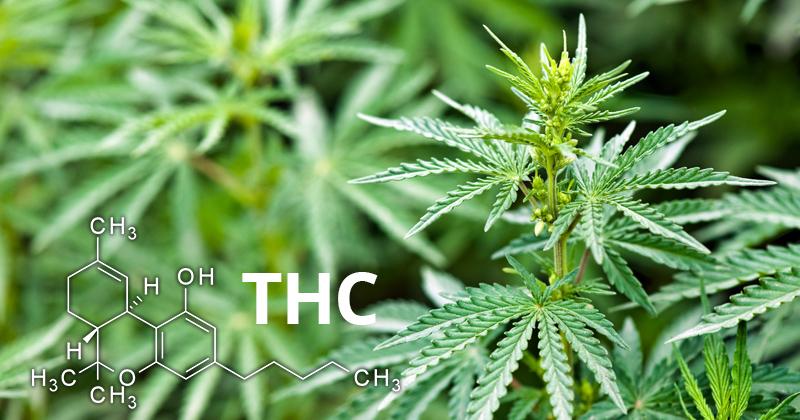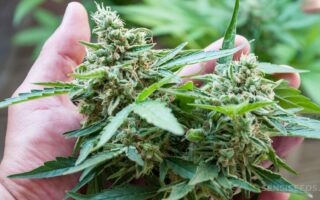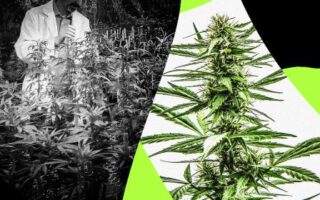As the dialogue surrounding cannabis continues to evolve, so too does our understanding of its effects on the human brain. Tetrahydrocannabinol, or THC, the primary psychoactive component of cannabis, has captured the imagination of researchers, policymakers, and curious minds alike. While many associate THC with a state of euphoria or relaxation, the complex relationship between this compound and brain cells unveils a multifaceted narrative that intertwines biology, psychology, and culture. In this article, we embark on a journey through the intricacies of THC’s interactions with our neural architecture, exploring both the intriguing benefits and the potential risks it poses to brain health. Join us as we delve into the science, the stories, and the shifting perceptions that define this compelling topic.
Table of Contents
- The Interaction of THC with Neural Mechanisms
- Exploring the Impact of THC on Neurogenesis
- Balancing Risks and Benefits of THC Consumption
- Guidelines for Responsible Use of THC and Brain Health
- Q&A
- In Summary
The Interaction of THC with Neural Mechanisms
When tetrahydrocannabinol (THC) enters the brain, its effects are mediated through the endocannabinoid system, particularly by binding to specific receptors known as CB1 receptors. These receptors are predominantly located in regions associated with memory, pleasure, and motor control. As THC interacts with these receptors, it can lead to various neurophysiological responses, influencing synaptic activity and neurotransmitter release. The modulation of neurotransmitters such as dopamine and serotonin contributes to the complex array of feelings, from euphoria to altered perception of time, that many users experience. This intricate dance not only highlights THC’s potential in therapeutic contexts but also raises questions about its long-term impact on brain health.
Research has shown that the interaction of THC with neural pathways can lead to both beneficial and adverse outcomes. For instance, while THC may enhance neuroprotection in certain scenarios, its prolonged use has been linked to potential deficits in cognitive functions, particularly in adolescents whose brains are still developing. Here are a few key aspects to consider:
- Memory Impairment: THC may impede short-term memory retention.
- Neuroplasticity Effects: Chronic exposure could potentially alter synaptic connectivity.
- Reward Processing: Engages brain circuits associated with reward, impacting motivation levels.
| THC Effects | Potential Benefits | Potential Risks |
|---|---|---|
| Euphoria | Events like enhanced mood can provide therapeutic benefits | May lead to dependency issues over time |
| Altered Perception | Pain relief for chronic conditions | Sabotage of reality perception in high doses |
| Relaxation | Reduction of anxiety under controlled conditions | Increased anxiety with improper use |
Exploring the Impact of THC on Neurogenesis
The relationship between THC and the brain’s ability to generate new neurons is an intriguing area of research that blurs the lines between recreational use and potential therapeutic applications. Studies suggest that THC, the psychoactive compound in cannabis, can influence neurogenesis in various ways. While some findings indicate that THC may promote the growth of new brain cells, particularly in the hippocampus, an area crucial for memory and learning, other research raises concerns about possible inhibitory effects on neurogenesis, especially with heavy or chronic use. This duality in findings underscores the complexity of THC’s impact on brain health and suggests that the dosing and context of consumption can significantly affect outcomes.
To further understand THC’s role in brain cell dynamics, several key factors should be considered:
- Dose-Dependent Effects: Low doses of THC may encourage neurogenesis, while high doses could hinder it.
- Age and Maturity: The effects of THC on neurogenesis can vary significantly between younger and older individuals.
- Contextual Use: The environment in which THC is consumed—recreational vs. therapeutic—may also dictate its effects on brain plasticity.
Table 1 below summarizes recent studies that examine THC’s influence on neurogenesis:
| Study | Findings | Notes |
|---|---|---|
| Study A | Increased neurogenesis in young adults | Low-dose THC |
| Study B | Hindered neurogenesis in chronic users | High-dose THC |
| Study C | No significant change in older adults | Variable results |
Balancing Risks and Benefits of THC Consumption
THC consumption elicits a spectrum of effects on brain function and health, making it crucial to weigh the potential benefits against the associated risks. On one hand, THC has been shown to provide therapeutic advantages such as:
- Pain Relief: Many users report significant reductions in chronic pain.
- Appetite Stimulation: THC can play a vital role in enhancing appetite, particularly beneficial for those undergoing treatments like chemotherapy.
- Anxiety and Stress Reduction: Some users find THC helps alleviate symptoms of anxiety and promotes relaxation.
Conversely, the consumption of THC is not without its drawbacks. Users may experience:
- Cognitive Impairment: THC can affect short-term memory and cognitive function, especially in adolescents.
- Dependency Risks: Regular use may lead to psychological dependence in certain individuals.
- Altered Mood States: While some experience relaxation, others may encounter heightened anxiety or paranoia.
To facilitate an informed decision, consider the following:
| Consideration | Risk Level | Benefit Level |
|---|---|---|
| Pain Management | Low | High |
| Memory Function | High | Low |
| Dependency | Medium | Medium |
Guidelines for Responsible Use of THC and Brain Health
When considering THC consumption, it’s essential to prioritize mental wellbeing while navigating its complex effects on the brain. Responsible use involves understanding both the potential benefits and risks associated with THC. Individuals should seek to establish a balanced approach that encompasses moderation and mindfulness, thereby minimizing potential adverse effects on cognitive function. Here are some key recommendations:
- Educate Yourself: Stay informed about THC, its strains, and the varying effects different dosages can have on brain health.
- Know Your Limits: Start with low doses and increase gradually to gauge your individual reaction.
- Avoid Frequent Use: Limit consumption to prevent tolerance build-up and possible negative impacts on memory and learning.
- Consider Your Age: Young consumers should be particularly cautious, as THC may affect brain development.
Furthermore, integrating healthy lifestyle habits can greatly enhance brain function alongside responsible THC consumption. Emphasizing nutrition, exercise, and sleep is paramount for overall brain health. In doing so, consider the following practices:
| Healthy Habit | Benefit to Brain Health |
|---|---|
| Balanced Diet | Supports cognitive function and reduces inflammation. |
| Regular Exercise | Enhances blood flow and promotes neurogenesis. |
| Quality Sleep | Facilitates memory consolidation and repair processes. |
Q&A
Q&A: THC and Brain Cells
Q1: What is THC, and how does it interact with the brain?
A1: THC, or tetrahydrocannabinol, is the primary psychoactive compound found in cannabis. When consumed, it binds to cannabinoid receptors in the brain, particularly the CB1 receptors, which play a crucial role in various brain functions. This interaction can influence mood, memory, and pain perception, leading to the characteristic effects associated with cannabis use.
Q2: Can THC damage brain cells?
A2: Research on THC’s effects on brain cells is complex. Some studies suggest that high doses, especially during critical developmental periods (like adolescence), can lead to cognitive impairments or changes in brain structure. However, other research indicates that low to moderate usage, particularly in adults, may not cause significant harm and might even have neuroprotective effects in certain contexts.
Q3: Does THC influence neurogenesis, the process of forming new brain cells?
A3: Yes, THC has been shown to affect neurogenesis, particularly in the hippocampus, an area crucial for learning and memory. Some animal studies indicate that certain cannabinoids can promote the growth of new neurons, though the implications for human brains remain under investigation. This nuanced interaction suggests that both the dosage and the developmental stage during which THC is consumed play critical roles.
Q4: What are the potential cognitive effects of THC on adult users?
A4: Adult users of THC may experience a range of cognitive effects. While some individuals report heightened sensory perceptions and enhanced creativity, others may experience short-term memory impairment or difficulties in attention. Chronic usage can lead to lasting changes in cognitive function, although these effects are often reversible after discontinuation.
Q5: Are there therapeutic applications of THC regarding brain health?
A5: Yes, THC and other cannabinoids are being explored for various therapeutic applications. For instance, they may alleviate symptoms of neurodegenerative diseases like Alzheimer’s by reducing inflammation and oxidative stress. Some studies suggest that THC can offer relief from anxiety and depression, highlighting its potential as a tool for mental health management, although more research is needed to fully understand its long-term impact.
Q6: Should individuals be concerned about using THC?
A6: Individuals considering THC use should weigh the potential benefits against possible risks, especially if they are young or have a history of mental health issues. It’s essential to consult healthcare professionals for personalized advice and to stay informed about ongoing research, as the understanding of THC’s effects on brain health continues to evolve.
Q7: What is the future of research on THC and brain cells?
A7: The future of research on THC and brain cells is promising and multifaceted. As societal attitudes toward cannabis shift and legalization increases, more controlled and long-term studies will emerge. This research will help clarify THC’s therapeutic potentials, risks, and mechanisms of action in the brain, ultimately guiding safe usage and public health policies.
In Summary
In the intricate dance between THC and our brain cells, science reveals a complex story of interaction and balance. As researchers continue to peel back the layers of this relationship, we gain a deeper understanding of how cannabinoids influence neural pathways, cognitive function, and overall brain health. This exploration is still in its infancy, and much remains to be uncovered.
As we contemplate the nuances of THC’s effects on the brain, it’s crucial to approach the topic with both curiosity and caution. Whether considering therapeutic applications or recreational use, we must navigate these waters with an informed perspective. The journey into the depths of THC and its interplay with our neurons is ongoing, inviting both inquiry and introspection.
the conversation surrounding THC and brain cells serves as a reminder of the marvels of our own biology, urging us to continue seeking knowledge and understanding in this ever-evolving field of study. As our minds expand, so too does our potential to harness this relationship for the betterment of health and well-being—one discovery at a time.



